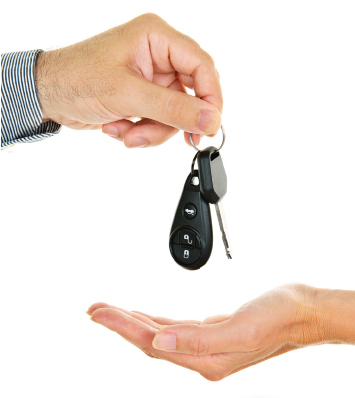Talking with Older Drivers: Is it Time to Put the Brakes On?
 Many Americans have expressed concern about the safety of a loved one, due to the growing number of older drivers and today’s driving complexities. These decisions about driving are difficult for older Americans to make on their own.
Many Americans have expressed concern about the safety of a loved one, due to the growing number of older drivers and today’s driving complexities. These decisions about driving are difficult for older Americans to make on their own.
This guide is to help bring about the conversation and assist you when the time is right to discuss the safety of your elderly relative, loved one or friend. More information is available at your state’s department of motor vehicle office or website.
What can I, as a family member or friend, do if I am concerned about the driving ability & safety of someone older who continues to drive?
First, recognize that driving is very important as it is our primary means of getting around. Second, if there are other family members or friends available, talk with them to see if they have made some of the same observations and discuss how you may be able to help the driver.
What can family members and friends do when a driver continues to drive against the advice of their doctor and others?
It is best to maintain a sense of trust in your relationship, being honest and persistent. Encourage the person to make a decision to reduce or stop driving as appropriate. Be aware that people who lose the privilege of driving often feel lonely or anxious because they have fewer opportunities to be with friends or involved in activities. If the person will not listen to reason, you may want to discuss the problem with their doctor to find out if there are any medical issues that should be reported.
If an older driver stops driving, what alternative means are available?
Most metropolitan areas have alternative means available, if you qualify. These services can be located within your community phone book. Be sensitive to the older person’s feelings. Expect some emotional reactions, and do what you can to help them through this trying time.
SAFETY PRECAUTIONS
Warning Signs
Reaction time is one of the most crucial functions to safe driving. This slows with age, but increasing distance between other cars and objects may help some older drivers.
Vision
Good vision is essential to safe driving. An older person may notice difficulty focusing on objects and switching focus from near to far. The ability to see one detail may diminish. Peripheral vision may also change with age. This is signi ficant, because about 98% of what we see when we drive is seen peripherally. Driving at night may become more di fficult due to clarity in sight issues. As we get older, we need more light to see clearly. Approaching headlight glare may make it harder to adjust.
Hearing
Some hearing loss is common among people age 65 and older. High pitched sounds — such as horns, sirens & train whistles — may become less audible long before low pitched ones do. Studies show people who have hearing difficulties are more likely to be inattentive to their surroundings. Family and friends who suspect an older person doesn’t hear well should recommend a hearing exam and offer to go with the older person to get one.
It is important to understand that even after taking steps to correct diminished eyesight or hearing, and after successfully avoiding adverse reactions to medication, an older person still may not feel comfortable behind the wheel. Encourage the older person to discuss this with you, another family member, friend or doctor. As a family member or friend, you must be sensitive to this insecurity and help your elder loved one.
